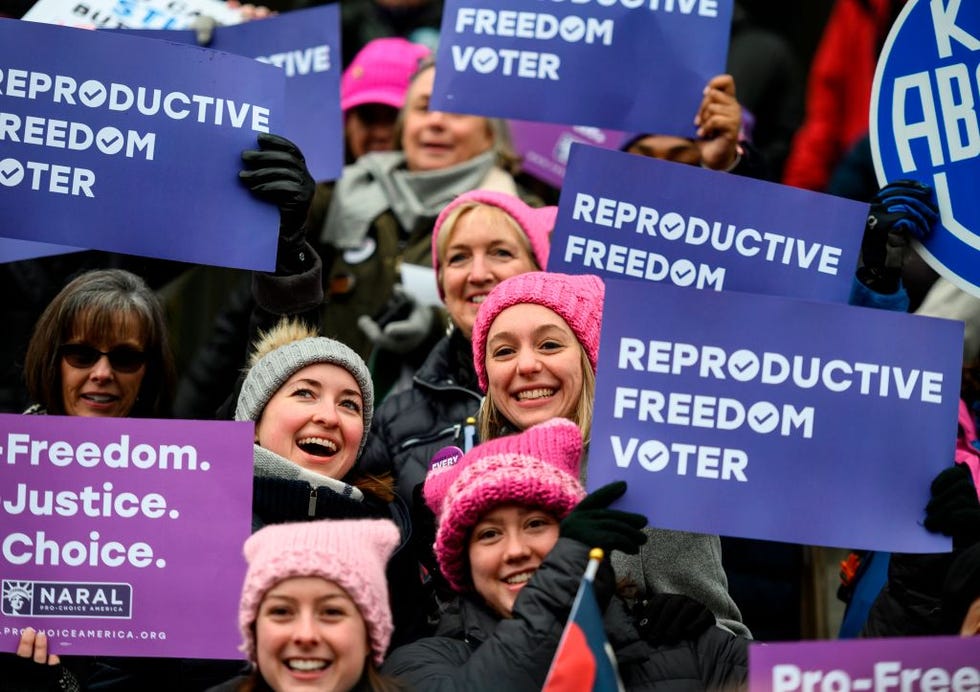Access To Birth Control: The Impact Of Over-the-Counter Options Post-Roe

Table of Contents
Increased Access and Convenience: Breaking Down Barriers to Birth Control
One of the most significant potential benefits of wider OTC birth control availability is increased access for underserved populations. Individuals in rural areas, low-income communities, and those lacking reliable transportation often face substantial barriers to accessing healthcare services, including prescription contraception. OTC options could dramatically reduce these barriers, empowering individuals to take control of their reproductive health. The convenience factor is equally compelling. No more appointments, no more waiting for prescriptions – simply accessing needed birth control when and where it's needed. This ease of access translates to:
- Reduced reliance on healthcare providers: Decreasing the burden on already strained healthcare systems.
- Potential for decreased healthcare costs: Lowering the overall cost of birth control for individuals and reducing the financial strain on families.
- More control over reproductive health decisions: Empowering individuals to make informed choices about their bodies and futures.
- Improved ability to plan pregnancies: Facilitating family planning and reducing the incidence of unintended pregnancies.
The shift towards OTC birth control offers the potential to create a more equitable and accessible system for all.
Potential Concerns: Safety, Misinformation, and Regulation
While the benefits of OTC birth control are substantial, potential concerns must be addressed proactively. The risk of self-medication and the potential for misuse or incorrect use cannot be ignored. Comprehensive education and readily available accurate information are paramount to mitigating these risks. Clear and accessible labeling and packaging, including detailed instructions and potential side effects, are crucial. We must also consider:
- The risk of incorrect usage leading to unintended pregnancies: Clear instructions and readily available support are essential to ensure proper use.
- The spread of misinformation regarding birth control effectiveness and safety: Combating misinformation through public health campaigns and reliable sources of information is crucial.
- The need for strong regulatory oversight to ensure product safety and efficacy: Stringent regulations are necessary to guarantee the quality and safety of OTC birth control options.
- Potential for increased healthcare costs associated with managing complications from misuse: Proactive education and readily available support can help reduce this risk.
Addressing these concerns requires a multi-pronged approach involving government agencies, healthcare providers, and public health initiatives.
The Economic Impact: Cost-Effectiveness and Affordability of Over-the-Counter Birth Control
The economic impact of increased access to birth control, especially through OTC options, is multifaceted. For individuals, the potential cost savings are significant, comparing over-the-counter prices to often higher prescription costs. Beyond individual savings, the healthcare system could also see significant cost reductions. This is primarily due to a reduction in unplanned pregnancies, which are associated with substantial healthcare expenses. Furthermore, increased access to contraception could lead to:
- Comparison of over-the-counter prices vs. prescription costs: Demonstrating the potential for significant cost savings for individuals.
- Impact on unplanned pregnancies and associated healthcare costs: Highlighting the potential for significant savings for the healthcare system.
- Potential for reduced abortion rates due to increased access to contraception: Reducing the overall cost burden associated with abortion care.
- Economic benefits for families and communities: Improving financial stability for individuals and strengthening communities.
The Role of Government and Healthcare Providers in Supporting Access
The government plays a vital role in regulating the safety and efficacy of OTC birth control while also funding public health initiatives to educate the public on its proper and safe use. Healthcare providers are equally crucial in providing accurate information and addressing individual concerns. Their role in educating the public about the different options available and their effective use is paramount. This collaboration is crucial in ensuring that the transition to wider OTC access is smooth, safe, and beneficial for all.
Securing Access to Birth Control Post-Roe: A Call to Action
The availability of over-the-counter birth control presents a complex picture in the post-Roe era. While increased access and convenience offer substantial benefits, concerns regarding safety, misinformation, and regulation must be addressed proactively. The potential economic benefits, both for individuals and the healthcare system, are undeniable. To ensure safe and effective access for all, we must prioritize public education, strong regulatory oversight, and collaborative efforts between government, healthcare providers, and the public. Learn more about your options for better access to birth control and advocate for improved access to birth control in your community. Together, we can build a future where reproductive healthcare is accessible, affordable, and empowering for everyone.

Featured Posts
-
 The Count Of Monte Cristo Review A Timeless Swashbuckler
May 04, 2025
The Count Of Monte Cristo Review A Timeless Swashbuckler
May 04, 2025 -
 Le Pen E La Destra Francese Le Ragioni Del Caccia Del Governo Bayrou
May 04, 2025
Le Pen E La Destra Francese Le Ragioni Del Caccia Del Governo Bayrou
May 04, 2025 -
 Is This Thing On New Photos Show Bradley Cooper Directing Will Arnett In Nyc
May 04, 2025
Is This Thing On New Photos Show Bradley Cooper Directing Will Arnett In Nyc
May 04, 2025 -
 Bookstores Remarkable Find A 45 000 Rare Novel
May 04, 2025
Bookstores Remarkable Find A 45 000 Rare Novel
May 04, 2025 -
 Star Studded Ufc 314 Lineup Weakened By Cancellation
May 04, 2025
Star Studded Ufc 314 Lineup Weakened By Cancellation
May 04, 2025
